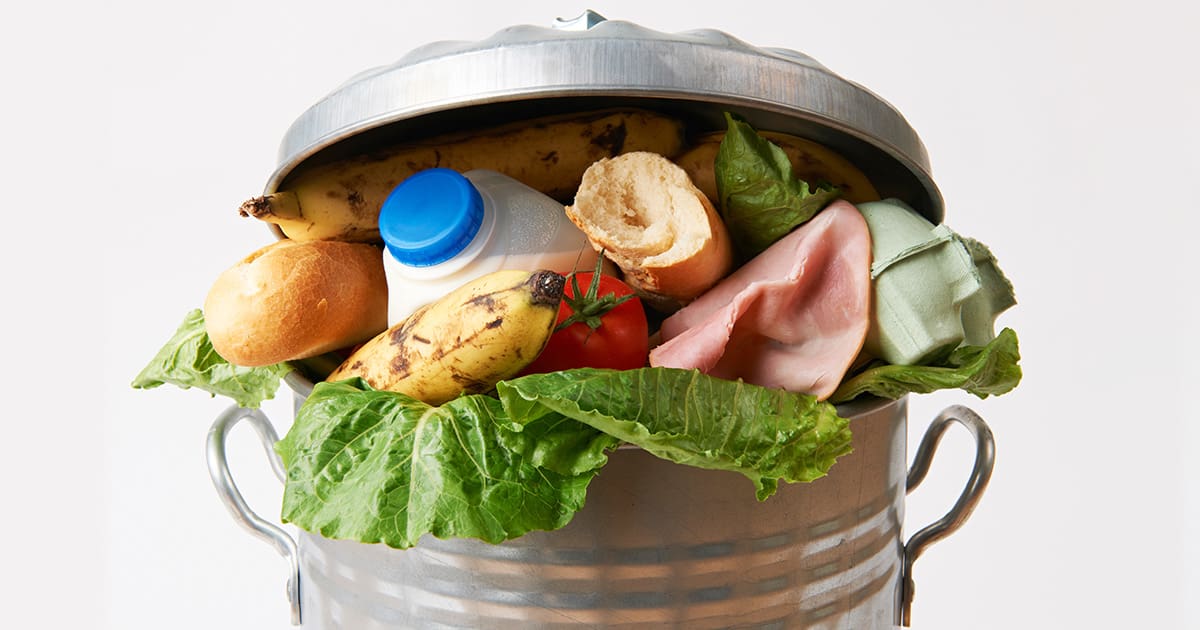Fighting Food Waste
The waste of food is a serious worldwide problem. According to a report of the World Wide Fund for Nature (WWF), 2,500 million tons of food are thrown into the garbage. Those numbers represent 40% of all the food that is produced and includes the waste that results from agricultural exploitation. This is, without a doubt, a very serious problem.
According to their website in Spain,
The same report presents a complete picture of the food loss and waste throughout the world and analyzes the loss related to harvest … information that is not included in the Index published by the Food and Agricultural Organization (FAO) which only includes losses sustained after harvest and losses accumulated along the chain of supply.
Climate change and waste
Food production uses an enormous amount of land, water and energy, so food waste has a significant impact on climate change. Previous estimates suggested that food waste generates 8% of greenhouse gas (GHG) emissions. New data from the report indicates that the figures are even more significant, and point to a contribution of approximately 10% of all greenhouse gas emissions This is equivalent to almost double the annual emissions produced by all cars that circulate in the United States and Europe.
As the use of agricultural resources expands worldwide, 440 million hectares of agricultural land and 760,000 cubic meters of water are used to produce the 1.2 billion tons of food that are lost before, during and after harvest or are diverted to other uses such as animal feed and biofuels. This is equivalent to an area larger than the Indian subcontinent and a volume of water similar to 304 million Olympic size pools. This data that does not include the additional resources used to produce food that is wasted later in the supply chain.
More losses in industrialized areas
The report also shows that contrary to what might be thought, per capita losses on farms are usually higher in industrialized regions. Despite having greater mechanization on farms and having only 37% of the world population, high and middle income countries in Europe, North America and industrialized Asia contribute 58% to the global crop waste.
Celsa Peiteado, head of the Sustainable Food program at WWF Spain, states: “Although we have known for years that food waste is a serious problem, we also know that it is usually minimized. This report shows us that it is possibly greater than we had thought. If we take into account that today, on the planet, there are almost 800 million people who go hungry every day, then we have to add this social emergency to the environmental impact.”
Peiteado concludes: “This data is very alarming: enough food is wasted to feed everyone in 2050. We could feed all the hungry people on the planet more than seven times”.
The report shows that society will not be able to reach a future of 1.5ºC if it does not address food waste, especially on farms. This is an issue that has been overlooked as preparations are made for the UN Climate Change Conference, but which requires urgent attention.
In the WWF’s view, to achieve a significant reduction in food waste, governments and market players must take steps to support farmers around the world and commit themselves to a 50% reduction of food waste at all stages of the supply chain.
These figures are intolerable for anyone minimally aware of health and development. The Vincentian Family has in its DNA the defense of impoverished peoples, the fight against hunger and the advance towards a society aware of finding solutions to the problem of climate change. Thus, in addition to denouncing this serious problem, we must take steps so that food waste is minimized as much as possible in our communities and associations. It is a great systemic change that we are capable of developing, if we get down to work.
Some actions that we could take in our communities:
- Evaluate the waste we are causing. Do we try to eat a diet that minimizes waste?
- Are we looking for alternatives so that food in good condition does not end up in the garbage?
- Could we carry out awareness campaigns to minimize food waste in our community?
There is no doubt that one of the ways to lead a simple life is also to prevent food products from ending up in the trash. When food is wasted, we are not only spending uselessly, but we are also causing other problems, such as those indicated in the previous report.
Javier F. Chento
Coordinator of Communications
of the Worldwide Vincentian Family
Tags:








0 Comments